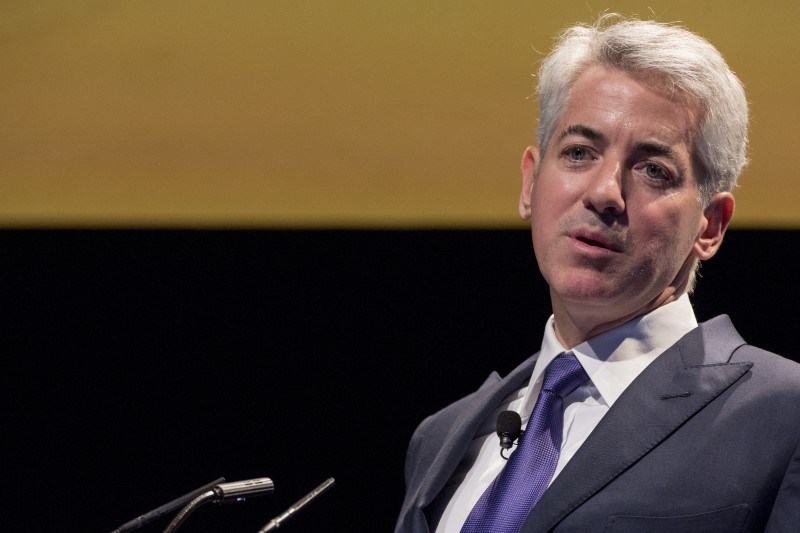By Svea Herbst-Bayliss
BOSTON (Reuters) - Billionaire hedge fund investor William Ackman, whose funds have suffered double-digit losses this year, on Tuesday told investors that 2015 could be his firm's worst ever, but said clients are generally sticking with him.
"If the year finishes with our portfolio holdings at or around current values, 2015 will be the worst performance year in Pershing Square's history, even worse than 2008 during the financial crisis," Ackman wrote in a 17-page letter that was seen by Reuters.
Investors in funds operated by Pershing Square (N:SQ) Capital Management have asked for only a minimal amount of money back recently, Ackman wrote in the letter, saying that the firm, founded in 2004, was not forced to sell out of positions in order to meet redemption requests.
Ackman's comments come less than a week after investors were rattled by turmoil in the credit markets and as many hedge fund managers are nursing heavy losses amid soured bets in the energy markets. Indeed a number, including LionEye Capital and Watershed Asset Management, have decided to sell off their holdings and shut down.
The average hedge fund has lost nearly 4 percent this year, according to Hedge Fund Research data.
Ackman emphasized his firm's low redemption levels.
"Our net redemptions were nominal at $39 million (£25.7 million) or 0.2 percent of capital for the third quarter, and $13 million or 0.1 percent in the fourth quarter," he said in the letter.
The firm's Pershing Square Holdings fund dropped 19.7 percent during the first 11 months of the year, marking a sharp contrast with last year's 40 percent gain when Ackman ranked as one of the $3 trillion hedge fund industry's biggest stars.
As a so-called activist investor who tends to make only a handful of concentrated bets and then pushes management to perform better, the 49-year old Ackman has seen much of last year's profits eaten away as his bets on drug company Valeant Pharmaceuticals (TO:VRX) and Platform Specialty Products (N:PAH) tumbled in the third quarter.
Still, Ackman, who oversees money for state pension funds, endowments and wealthy investors, said the portfolio's intrinsic value increased even as its mark-to-market value, which reflects the daily stock price, has declined "substantially."
Ackman said again in the letter that he is sticking with Valeant - which surged 16.41 percent on Tuesday - saying, "We do not believe that Valeant's long-term earnings prospects have materially changed."
As of early November, Valeant's stock price had plunged 70 percent from its peak in August. But the stock has since recovered some ground as Ackman and other large investors bought more shares. In the last weeks Ackman used over-the-counter options transactions. He said in the letter that if the stock price rises to $165 or more by January 2017, "We will make more than 10 times our net investment over this period."

Ackman said uncertainty surrounding Valeant - including its drug pricing and accounting practices - should begin to disappear on Wednesday when the company discloses what it will likely earn next year.